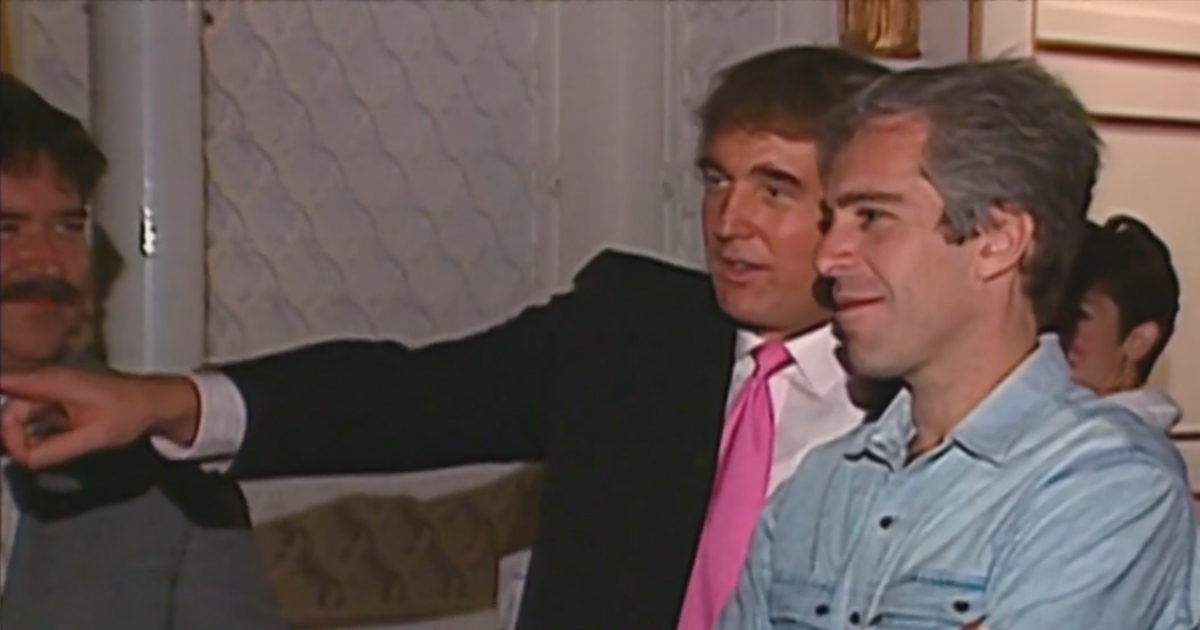Trump Just Shot His Base in the Middle of 5th Ave By Dumping Epstein Conspiracy

Live by the sword, die by the sword.
For the Trump administration, now in its second term, that sword appears to be sharpened conspiracy theories—the sort that once galvanized a disenfranchised base, but are now turning inward, carving out chaos from within.
Over the past two days, the MAGA world has been in a state of open revolt—not against former President Joe Biden, not against liberal elites or “woke” corporations—but against itself. The source of the anger? An unceremonious and quietly damning statement from the FBI, revealing there is no secret Jeffrey Epstein “client list,” despite years of right-wing media speculation and promises from Trump allies like Attorney General Pam Bondi and FBI Director Kash Patel that such a list not only existed, but would promptly be released.
This simple clarification from the FBI has set off a nuclear reaction in the MAGA media ecosystem. Tucker Carlson, once Trump’s most effective megaphone, took to his new platform to rage that this is the kind of cover-up is that leads to “revolutions.” Megyn Kelly, another influential right-wing voice, wasn’t far behind — openly calling for Bondi to be fired, saying, “You can’t lie to your base about something this dark and disgusting. There’s a cost to betrayal.”
Indeed, there is.
The Epstein saga has long been a lodestar for conspiracy theorists, with its tantalizing hints of elite pedophilia, global blackmail networks, and shadowy intelligence ties. For years, figures like Dan Bongino, Patel, and Bondi themselves have stoked this narrative, not with hard evidence but with winks, nods, and loaded promises of coming revelations. Now, with those promises evaporated, the same audience they helped radicalize is turning against them—and by extension, against Trump.
It’s a textbook case of Frankenstein politics: you build a monster to terrorize your enemies, only to find it storming your own castle.
Trump’s embrace of conspiratorial media figures has always been a double-edged sword. Bringing in someone like Bondi—whose role in defending Trump during his first impeachment made her a MAGA folk hero—might have seemed like a savvy loyalty hire. But her repeated, confident insistence that the Epstein list was “on her desk,” insisting it was real and damning, now looks less like strategic messaging and more like reckless pandering.
Bongino, another key MAGA amplifier, has remained relatively quiet in recent days—a signal in itself. He, too, trafficked in dark allusions and deep state suspicion that fed the Epstein narrative, to a remarkably lucrative degree. But as the story collapses under the weight of reality, he had to reveal that there was no there there, begging questions from his followers if he was lying to them now, or back then?
The real danger for Trump isn’t just internal embarrassment. It’s the loss of control over the very media figures who helped build the MAGA brand. Tucker Carlson, for all his eccentricities, is no Alex Jones. His audience—massive, loyal, and notably critical-thinking compared to the average Facebook meme warrior—takes his betrayals seriously. The same goes for Megyn Kelly, who, despite her post-Fox exile, has found a massively influential footing among disaffected conservatives who crave truth over tribalism.
These aren’t just commentators—they’re leaders of a movement Trump once directed. Their break from the administration over something as symbolically potent as the Epstein case could signal the start of a deeper unraveling.
The irony is hard to miss. Conspiracy theories were once Trump’s superpower. He used them to delegitimize Barack Obama, to smear Hillary Clinton, to excuse Russia’s election interference, and to stoke the fires of January 6th. But now that he is the government—the establishment, the “deep state” he once railed against—those same theories are cutting the other way.
It’s easy to point fingers at shadowy cabals when you’re an outsider. It’s much harder to do so when you’re sitting behind the Resolute Desk.
Trump once famously boasted, “I could stand in the middle of Fifth Avenue and shoot somebody, and I wouldn’t lose any voters.” It was meant as hyperbole, a brash declaration of his grip over the MAGA base.
But with the Epstein conspiracy unraveling, we may be witnessing the political equivalent of that act—except this time, he’s pulling the trigger on his own supporters’ trust. For years, Trumpworld fanned the flames of Epstein speculation, turning it into a loyalty test and a symbol of elite corruption. Now that the promised revelations have vanished into smoke, the betrayal cuts deeper than policy failure—it hits at the heart of the base’s belief system. And for many, that’s unforgivable.
Trump’s team would do well to learn this lesson before more damage is done. The base may tolerate policy shifts, chaotic messaging, even criminal indictments. But being lied to about the darkest boogeyman in MAGA mythology? That’s a betrayal they won’t forget.
And if Tucker and Megyn are leading the exodus, the castle may already be burning.
This is an opinion piece. The views expressed in this article are those of just the author.





Comments
↓ Scroll down for comments ↓